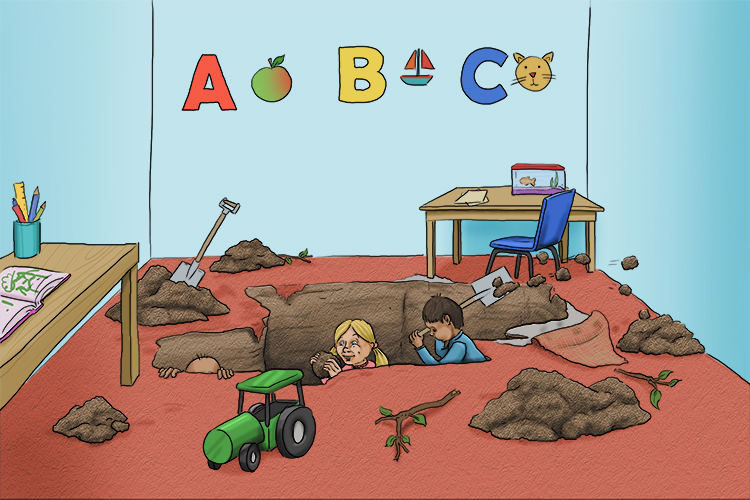Primary Economy – The part of the economy concerned with the extraction of raw materials. It includes fishing, farming and mining
In less developed economies, the primary sector will comprise the biggest part of the economy.
To remember the meaning of the term Primary Economy, use the following mnemonic:
In the primary school (which is the first main school kids go to) classroom, the kids had been left alone too long and they had dug down into the floor, finding raw materials.

The primary economy includes any industry involved in the extraction and production of raw materials, including farming, logging, fishing, and mining.
This sector generally makes up a larger portion of the economy in developing countries than in developed countries, where service industries are dominant.
As an example, in 2018, agriculture, forestry, and fishing accounted for more than 15% of gross domestic product (GDP) in Sub-Saharan Africa but less than 1% of GDP in North America.
In poorer countries, much of the work performed in the primary economy is done by hand or basic machinery, while in developed countries the primary sector has become more technologically advanced, requiring far fewer workers.




